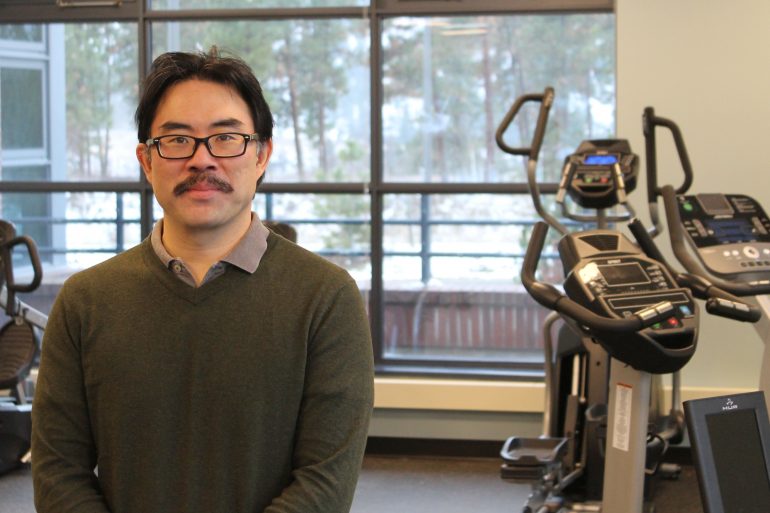
Brodie Sakakibara is an assistant professor with the Centre for Chronic Disease Prevention and Management based at UBC Okanagan.
Greater efforts to improve lifestyle identified as a solution
A lack of physical activity, a poor diet and too much stress are taking their toll on the health of Canadians, says a new UBC study.
Researchers from UBC’s Faculty of Medicine caution that too many Canadians live with a number of health issues that impact their ability to lead healthy lifestyles.
Brodie Sakakibara is an assistant professor with the Centre for Chronic Disease Prevention and Management based at UBC Okanagan. He, along with colleagues Adebimpe Obembe and Janice Eng from UBC’s department of physical therapy, recently published a study examining how common it is for Canadians to have multiple—and serious—health conditions.
“Inactivity, poor diet and more than optimal amounts of stress combined with an aging population are resulting in increasing numbers of Canadians with cardiometabolic conditions, and thus increasing their risk of poor health,” says Sakakibara.
Stroke, heart disease and diabetes are three of the most prevalent chronic diseases worldwide, he says and they have a substantial social and economic burden. They are cardiometabolic diseases—affecting the heart and blood vessels—mostly caused by lifestyle behaviours and are the leading causes of health resource use, hospitalizations, morbidity and mortality in Canada.
Cardiometabolic multimorbidity (CM) is having a diagnosis of at least two of those conditions. Using data from a 2016 Canadian Community Health Survey with 689,300 respondents, the researchers investigated CM and its connection to physical activity, diet and stress.
The study reports that the number of Canadians with CM or at risk of CM is high, and an increasing onset of cardiometabolic conditions is associated with higher chances of physical inactivity and stress.
“We found that people with all three diseases had four times the chance of reporting zero minutes of physical activity per week than people with none of the conditions. And similarly, they had four times the chance of reporting high levels of stress,” says Sakakibara. “These lifestyle behaviours are clearly associated with bad or even dangerous health outcomes.”
The issue, he adds, is that healthcare management for people with multiple chronic diseases is traditionally based on disease-specific strategies often independent of one another—a person with diabetes is treated for that chronic illness and not others. This leads to fragmented care with multiple care providers and systems.
“Often most patients with multiple chronic conditions develop complications that are clinically complex and become unique healthcare challenges. These complexities are often poorly understood, which means these patients have unmet health care needs,” says Eng.
While getting more active, lowering stress and eating well won’t cure all ailments, Sakakibara says it would certainly be a step in the right direction. The study suggests the time has come for greater efforts to prevent CM in individuals at high risk (i.e., those with one cardiometabolic condition), as well as efforts to help people with CM better manage their health and well-being.
“Lifestyle behaviour modification is an important strategy for the management and prevention of future heart or stroke events,” he says. “Physical activity several times a week, combined with a healthier diet, can manage risk and complications, while at the same time helping to lower stress.”
This study, partially funded by the Canadian Institutes of Health Research and Michael Smith Foundation, was published recently in BMC Public Health.